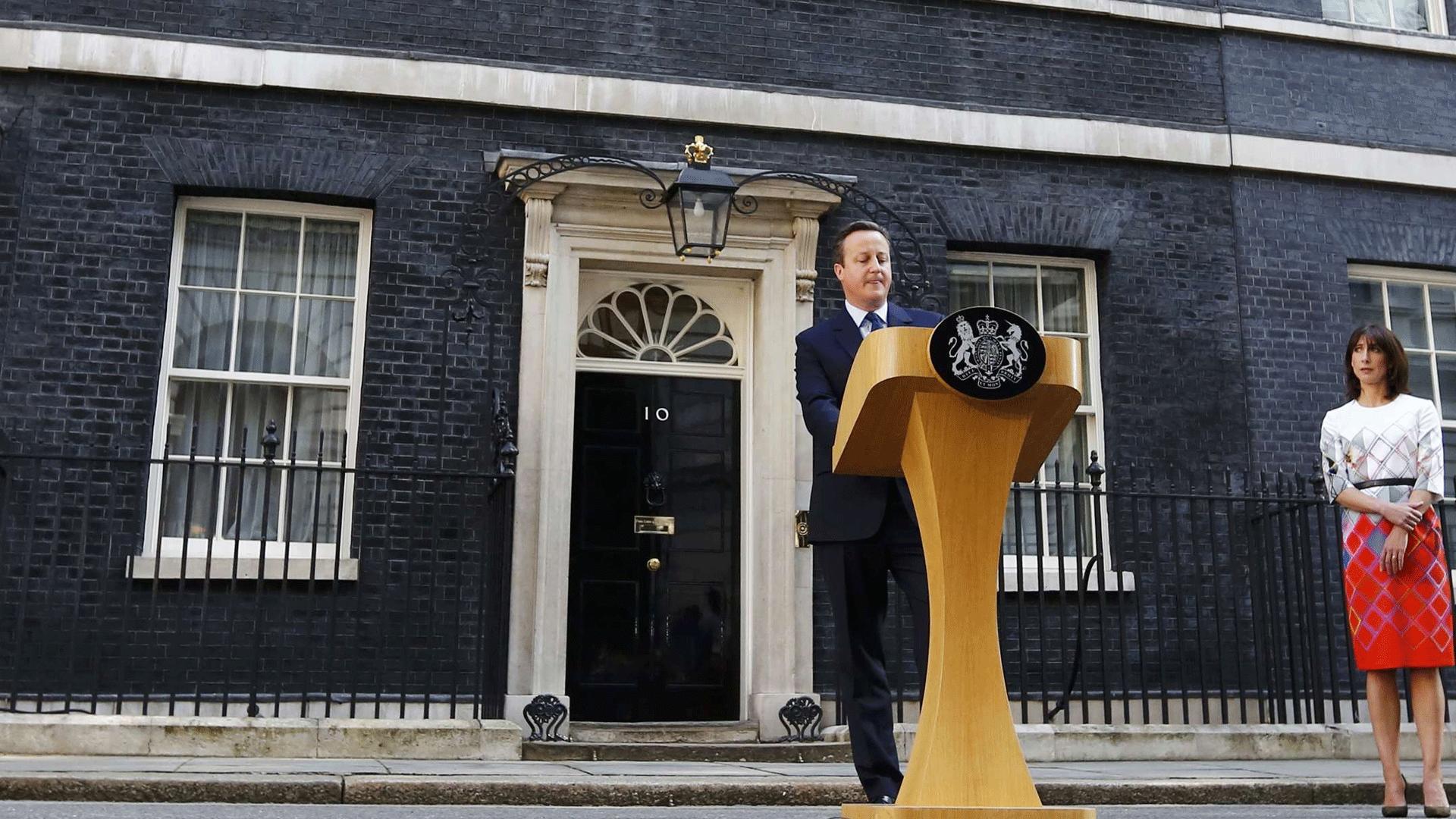Brexit: What does it mean for expats, here and in the EU?
- Published
David Cameron on the future of the UK's EU workers
Approximately 1.3 million Britons live and work in Europe. Spain's sunny climes are the biggest draw for expats - Ireland and France are also popular.
In these countries British people have taken advantage of the right to free movement and employment.
Under Article 50 of the Treaty on European Union, Britain has two years to arrange new deals with EU member states - but in the meantime what should expats, both Brits abroad and EU nationals here, look out for, now the UK has voted to leave the EU?

How will British expats in the EU fare?
Many British expats own property in Europe and the likelihood is that they'll be able to continue to do so. The main issue to be aware of is a potential change in inheritance and tax laws.
Of course, if the pound remains weak many expats may use the opportunity to re-enter the British property market.
Working in the EU could become more difficult for UK expats if host countries ask them to comply with more restrictive rules when it comes to permits and setting up businesses. They may lose their automatic right to work within the EU area and be asked to apply for Blue Cards. , external
"Will I have to get new visas?" asks Ben Munday, a British expat living in Sweden
For the next two years or so, while Britain negotiates the terms of its exit under article 50, nothing will change for British expats abroad because the UK will remain part of the EU during this period.
After last week's vote, Spain's Prime Minister Mariano Rajoy said nothing would change for Britons in Spain while an exit was being negotiated - they would have the same rights they have enjoyed until now as EU citizens.
What happens after Britain exits the EU depends on the type of deal the UK strikes with the EU. It is possible it could become more difficult for new expats to find work.
They could fall foul of the rule which exists in 15 EU member states, which says that you can only be hired if no other suitable candidate has been found within the EU area.
"[The] Brexit vote throws into serious doubt the rights of UK expats to work in EU countries," says George Peretz QC, an expert in EU law. "Everything depends on the arrangements that the UK enters into with the EU after withdrawal."

What about EU citizens working in the UK?
The personal finances of the three million EU nationals living and working in the UK will also be affected. The biggest group of Europeans living here are Poles, followed by Irish nationals and then Germans.
London-based German journalist Marina Gerner worries the UK will be "less liberal, less open"
European expats living here will be affected by any general economic consequences of Brexit as much as the rest of the UK's citizens.
However, they could be more exposed to a fall in the pound as their salaries won't go as far when they travel home. Similarly the value of any remittances sent back to their countries of origin will also fall.

What about the right to work in the UK?
This is another issue which will have to be renegotiated with the rest of Europe.
"We'll have to work around Brexit and be positive," says London-based businessman Yannos Hadjiioannou
Some EU nationals could be left without the right to work in the UK - in which case they would have to apply for work permits or visas.
Britain already has a points-based system for non-EU citizens who apply to live and work here. That could be extended to EU citizens as well.

What does the fall in sterling mean?
Over the past few weeks the pound has fluctuated as investors worried about the risk of Brexit, and on Friday morning it fell precipitously.
Ask Andy: What happens to the pound after the UK's EU vote?
"For anyone who relies on an income in the UK and is paid in pounds, but lives somewhere else, a decline in sterling can be disastrous, as their spending power is undermined when the pound falls," says Kathleen Brooks, research director at City Index. But that's not the case for all expats.
"If you are an expat and you earn in another currency, say US dollars, and you visit the UK frequently, then this decline in the pound has been good news, especially since the dollar has been strengthening this year," she adds.

What about my pension?
Pensioners are the biggest group of British expats living in other EU countries and many of them use their pensions to fund their lives in the sunshine. These pensions will be affected by any currency swings.
"Brexit doesn't really impact me," says Tom Brown, a British expat living in Cyprus
However, more of a worry to retirees will be whether their state pensions will be up-rated annually. At the moment UK citizens who live in the European Economic Area (and Switzerland) have their state pensions protected - they're pegged to wage or price inflation.
Following the vote to leave, the UK government will have to decide whether this will continue or whether UK pensioners living in EU countries should be treated as they are if they retire to Canada, for example, where their pension is frozen.
At the moment, part of the reason that UK pensioners in the rest of the EU see their pension go up every year is because the principle of the single market is applied. That means pensions and other social security payments rise wherever you live. Because this agreement is a mutual arrangement between the UK and the rest of the EU, it is now likely to form part of the renegotiation process.
However, Tom Selby, senior analyst at AJ Bell, says: "While some believe the government will be able to negotiate protections for expat pensioners - it is worth noting the UK has not arranged a similar deal with a non-EU country since 1981."
He suggests Britons who have retired to Europe could see their state pensions curtailed by up to £50,000 if a pensions deal is not negotiated.
- Published24 June 2016

- Published24 June 2016

- Published29 June 2016
